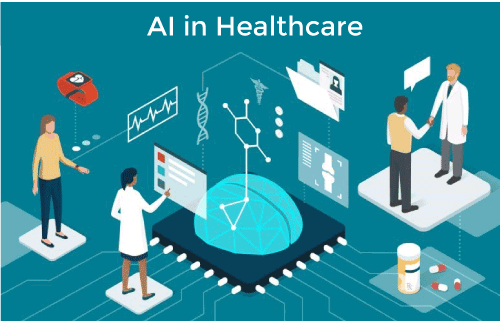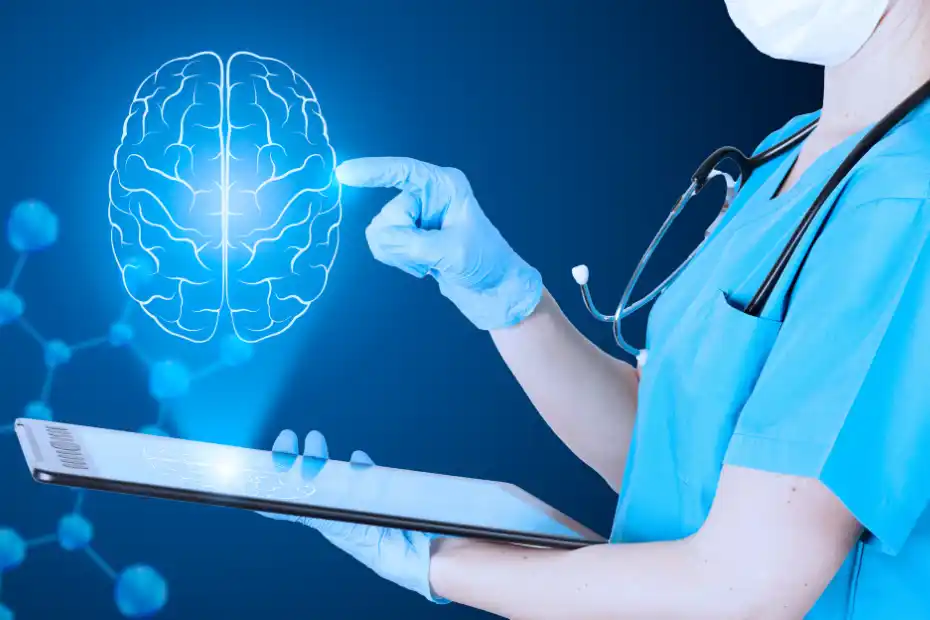1. Introduction
What is AI in Healthcare?
Artificial Intelligence (AI) is like a super-smart computer that can learn and make decisions. In healthcare, AI helps doctors and hospitals by analyzing data, predicting outcomes, and even assisting with tasks that usually take a lot of time.
AI in healthcare is growing rapidly. In fact, the global market for AI in healthcare is expected to jump from $15.4 billion in 2022 to $54.4 billion by 2029. That’s a lot of growth, showing how important and useful AI is becoming in taking care of our health.
2. Better Diagnoses
How AI Improves Diagnoses
AI can help doctors find diseases more accurately. For example, AI systems can analyze medical images like X-rays and MRIs to spot issues that might be missed by the human eye.
- Example: AI systems used for mammograms (breast X-rays) have improved the detection of breast cancer by about 9% compared to traditional methods. This means AI helps catch cancer earlier, which can save lives.
Potential Drawbacks
Sometimes, AI systems can make mistakes if they are trained with biased data. This could lead to less accurate results for certain groups of people. It’s also important that doctors don’t rely solely on AI but use it as a tool alongside their expertise.
3. Personalized Treatment
How AI Customizes Treatments
AI helps doctors create customized treatment plans based on your unique health data. By analyzing lots of information, AI can suggest the best treatments for you individually, rather than using a one-size-fits-all approach.
- Example: IBM Watson for Oncology uses AI to suggest treatment options for cancer patients. It has been accurate in matching expert oncologists’ recommendations 93% of the time.
Potential Drawbacks
Creating personalized plans depends on having accurate and complete data. There are also concerns about data privacy and how well AI systems integrate with existing medical records.
4. Continuous Monitoring
How AI Keeps Track of Your Health
AI-powered devices, like smartwatches, can monitor your health around the clock. These devices can track things like heart rate and activity levels and even alert you or your doctor if something seems wrong.
- Example: The Apple Watch can detect irregular heartbeats and has been shown to correctly identify atrial fibrillation (a type of irregular heartbeat) 98% of the time.
Potential Drawbacks
With continuous monitoring, there are concerns about how secure your health data is and whether it’s protected from unauthorized access.
5. Streamlined Admin Tasks
How AI Helps with Paperwork
AI can automate administrative tasks in hospitals, like scheduling appointments, managing billing, and handling paperwork. This saves time and reduces errors.
- Example: AI chatbots that handle appointment bookings have cut down the time needed for administrative tasks by up to 30%, allowing staff to focus more on patient care.
Potential Drawbacks
The use of AI in admin tasks might lead to job displacement for some staff. Also, setting up and integrating these AI systems can be costly and complex.
6. Faster Drug Discovery
How AI Speeds Up Medicine Development
AI can sift through huge amounts of data to find new drugs more quickly. It helps researchers identify promising compounds and predict how effective they might be.
- Example: AI was used to speed up the search for treatments for COVID-19, cutting down the time for discovering potential drugs from years to months.
Potential Drawbacks
Developing new drugs with AI can be expensive, and there are ethical considerations regarding how drugs are tested and the accuracy of AI predictions.
7. Better Patient Outcomes
How AI Supports Doctors’ Decisions
AI tools help doctors make better decisions by analyzing patient data and providing recommendations. This can lead to fewer mistakes and better treatment outcomes.
- Example: AI systems in emergency departments have been shown to reduce diagnostic errors by 25% and improve how patients are managed.
Potential Drawbacks
If the data used by AI is incorrect, it could lead to wrong recommendations. It’s important for doctors to review and validate AI suggestions.
8. Increased Patient Engagement
How AI Helps You Stay Involved in Your Health
AI-powered apps and virtual assistants can keep you informed about your health, remind you to take medication, and help manage your health conditions.
- Example: Apps like Ada Health provide personalized health advice and symptom checks, helping users stay engaged with their health management.
Potential Drawbacks
AI apps might not always understand complex medical situations perfectly and can sometimes give incorrect advice.
9. Better Resource Management
How AI Optimizes Hospital Resources
AI helps hospitals manage resources more efficiently, like predicting patient needs, managing staff schedules, and ensuring that equipment is used effectively.
- Example: AI systems have reduced patient wait times by up to 20% and improved how hospitals allocate their resources.
Potential Drawbacks
Implementing AI in resource management can be challenging and requires accurate data. There’s also a risk of relying too much on AI predictions without considering unexpected factors.
10. Advanced Medical Imaging
How AI Enhances Imaging
AI improves the quality of medical images and helps detect issues more accurately. It can analyze images from X-rays, CT scans, and MRIs to find abnormalities that might be missed by human eyes.
- Example: AI systems analyzing chest X-rays have identified pneumonia with an accuracy of 94%, compared to 86% for radiologists.
Potential Drawbacks
AI systems need to be integrated well with existing imaging technologies, and there’s a risk of errors if the AI algorithms are not properly validated.



